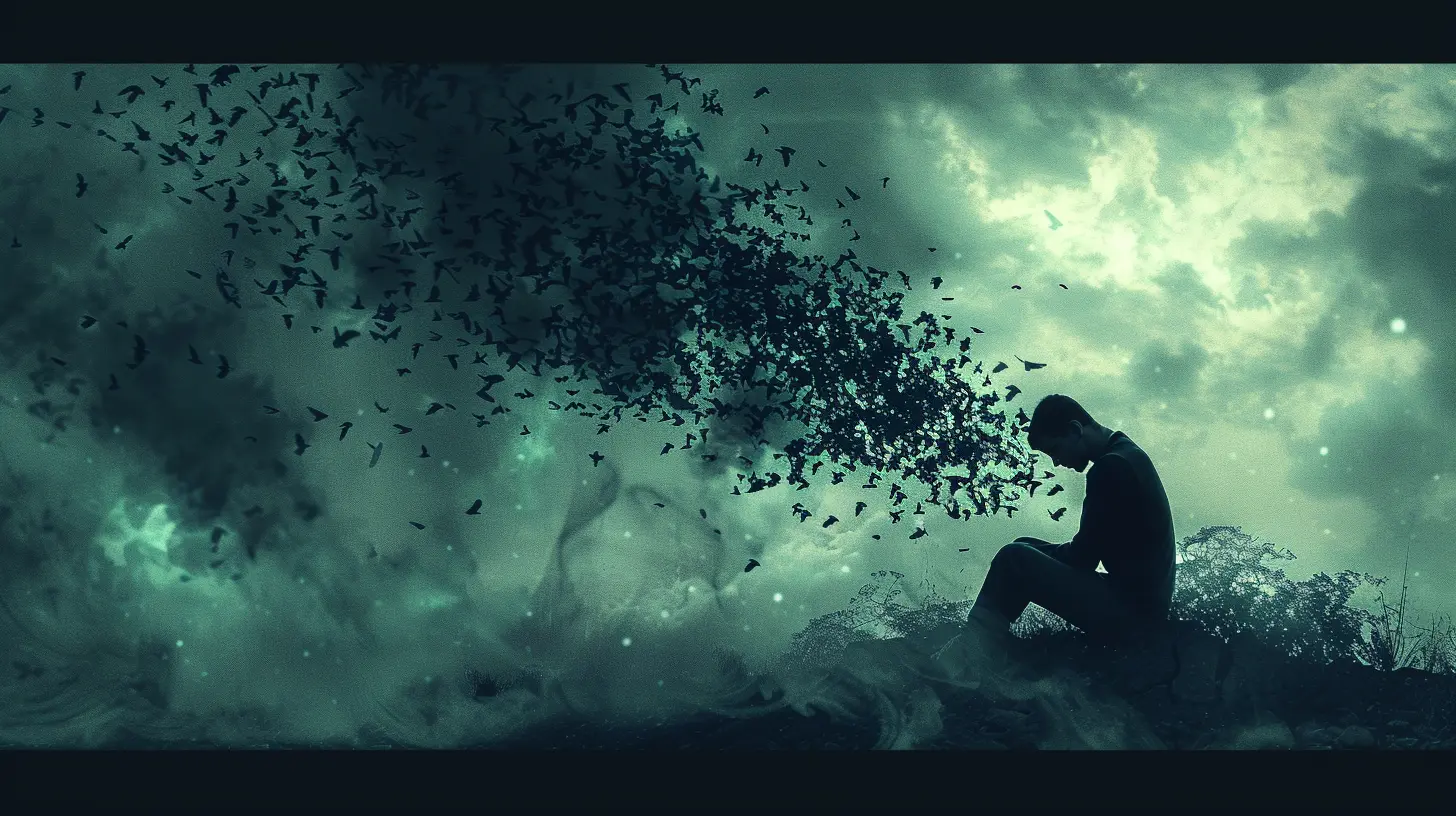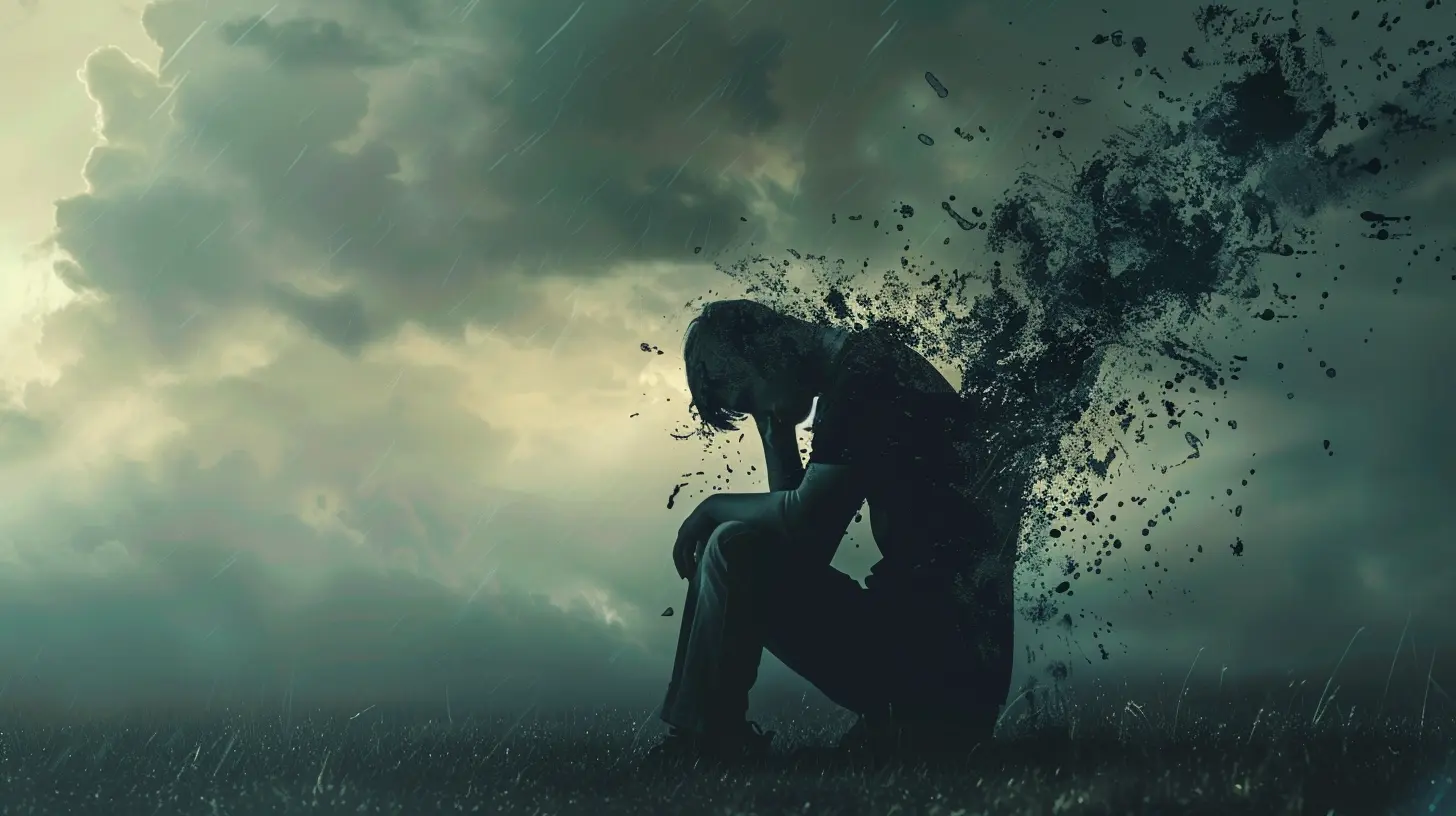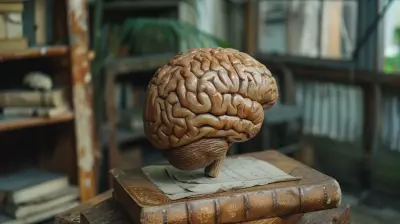Understanding the Emotional Landscape of PTSD
19 April 2025
Post-Traumatic Stress Disorder (PTSD) is more than just a psychological condition—it's an emotional battlefield that many people navigate daily. Whether you're someone experiencing PTSD, a loved one trying to offer support, or simply looking to understand it better, this guide will break it down in a way that truly resonates.
PTSD isn’t just about flashbacks or nightmares—it’s about emotions that feel too big to handle, a mind that never fully relaxes, and a heart that’s weighed down by past experiences. Let’s unpack the emotional complexity of PTSD and how it affects those living with it.

What is PTSD?
PTSD is a mental health condition triggered by experiencing or witnessing a traumatic event. It can develop after things like:- Military combat
- Physical or emotional abuse
- Car accidents
- Sexual assault
- Natural disasters
- Sudden loss of a loved one
But here’s the thing—it doesn’t always show up immediately. Sometimes, it sneaks in weeks, months, or even years later, slowly wrapping its grip around the person affected.

The Emotional Rollercoaster of PTSD
People often reduce PTSD to just fear and anxiety, but it's so much more than that. It’s an emotional landscape filled with highs and lows, unexpected triggers, and overwhelming feelings.1. Fear and Hypervigilance
Imagine feeling like you're constantly walking through a haunted house—always on edge, waiting for something to jump out at you. That’s what hypervigilance feels like. PTSD makes the brain stuck in survival mode, always scanning for danger, even when there’s none.2. Guilt and Shame
A lot of people with PTSD wrestle with guilt. They ask themselves:- “Why did I survive when others didn’t?”
- “Could I have done something differently?”
- “Did I bring this on myself?”
This guilt is exhausting and often undeserved, but it lingers like a heavy cloud over their emotional well-being.
3. Anger and Irritability
PTSD can make people feel like they’re a shaken bottle of soda—one wrong move, and everything explodes. Outbursts of anger, frustration, or irritability are common because emotions are always simmering just below the surface.4. Sadness and Depression
PTSD isn’t just about reliving the past; it also steals the joy from the present. Many sufferers withdraw, feeling detached from loved ones and struggling to find happiness in things they once enjoyed. Loneliness creeps in, and depression often follows.5. Numbness and Emotional Detachment
Sometimes, PTSD makes emotions disappear altogether. It’s like being wrapped in a thick fog where nothing feels real or meaningful. People may feel disconnected from themselves and the world around them—like they’re watching life happen rather than living it.
How Triggers Work
Triggers are like landmines hidden in everyday life. A sound, smell, or even a casual comment can suddenly transport someone back to their trauma. For example:- A car backfiring might remind a veteran of gunfire.
- A certain type of perfume might remind someone of their abuser.
- A crowded place might bring back feelings of helplessness from past trauma.
These triggers aren’t just uncomfortable—they’re terrifying, overwhelming, and can cause intense emotional or physical reactions.

Coping with the Emotional Toll of PTSD
Living with PTSD is exhausting, but there are ways to manage the emotional chaos. Here are some strategies that can help:1. Grounding Techniques
When emotions spiral out of control, grounding techniques can help bring someone back to the present moment:- 5-4-3-2-1 method: Name five things you see, four things you can touch, three things you hear, two things you smell, and one thing you taste.
- Breathing exercises: Slow, deep breaths can help calm the nervous system.
- Holding a cold object: Ice cubes or cold water can jolt someone back to reality.
2. Therapy and Professional Support
PTSD is tough to battle alone. Seeking therapy—especially trauma-focused cognitive behavioral therapy (CBT) or Eye Movement Desensitization and Reprocessing (EMDR)—can make a huge difference.3. Building a Support System
Having friends or family who understand PTSD can be a game-changer. Just knowing that someone is there to listen without judgment can be incredibly healing.4. Journaling and Expressing Emotions
Writing down feelings, even if it’s just in a private journal, can be a powerful way to process emotions and gain clarity. Art, music, or any form of creative expression can help too.5. Practicing Self-Compassion
Many people with PTSD blame themselves or feel weak for struggling. But here’s the truth: PTSD isn’t a sign of weakness—it’s a sign that someone has been through something deeply painful. Treating oneself with kindness and patience is crucial for healing.Supporting a Loved One with PTSD
If someone you care about is dealing with PTSD, it can be hard to know what to do. Here are some ways to support them:- Listen without judgment. Let them vent, cry, or share their feelings without trying to "fix" them.
- Respect their triggers. If they tell you certain things make them uncomfortable, be mindful of those boundaries.
- Encourage professional support. Gently suggest therapy, but never force it. Healing happens on their timeline, not yours.
- Be patient. PTSD recovery isn’t linear. Some days will be better than others, and setbacks are normal.
The Road to Healing
PTSD doesn’t have a quick fix, and healing isn’t about forgetting the trauma—it’s about learning how to live with it. Some days will be harder than others, but with the right support, self-care, and coping strategies, it is possible to reclaim peace.If you're struggling with PTSD, please know this: You are not broken. You are not alone. You are stronger than you realize. Healing takes time, but every step forward—no matter how small—is a victory.
all images in this post were generated using AI tools
Category:
Post Traumatic Stress DisorderAuthor:

Janet Conrad
Discussion
rate this article
3 comments
Elowyn McAndrews
Thank you for shedding light on the emotional complexities of PTSD. Your insights highlight the importance of understanding and compassion for those affected. It’s crucial to create safe spaces for healing and connection. Together, we can promote awareness and support for recovery journeys.
April 25, 2025 at 4:30 PM

Janet Conrad
Thank you for your thoughtful comment! I completely agree that compassion and safe spaces are vital for healing and recovery. Together, we can make a difference.
Paul Peterson
Navigating PTSD requires compassion, patience, and understanding from all.
April 21, 2025 at 4:15 PM

Janet Conrad
Absolutely, compassion and patience are crucial in supporting those with PTSD. Thank you for highlighting this important aspect!
Veda McNeely
Thank you for shedding light on the emotional complexities of PTSD. Your insights into the diverse experiences of individuals affected by trauma are both enlightening and necessary. I appreciate how you emphasize the importance of empathy and understanding in supporting those navigating their healing journeys. Looking forward to more discussions on this vital topic!
April 20, 2025 at 5:01 PM

Janet Conrad
Thank you for your thoughtful response! I'm glad you found the insights valuable, and I appreciate your support for further discussions on this important topic.



